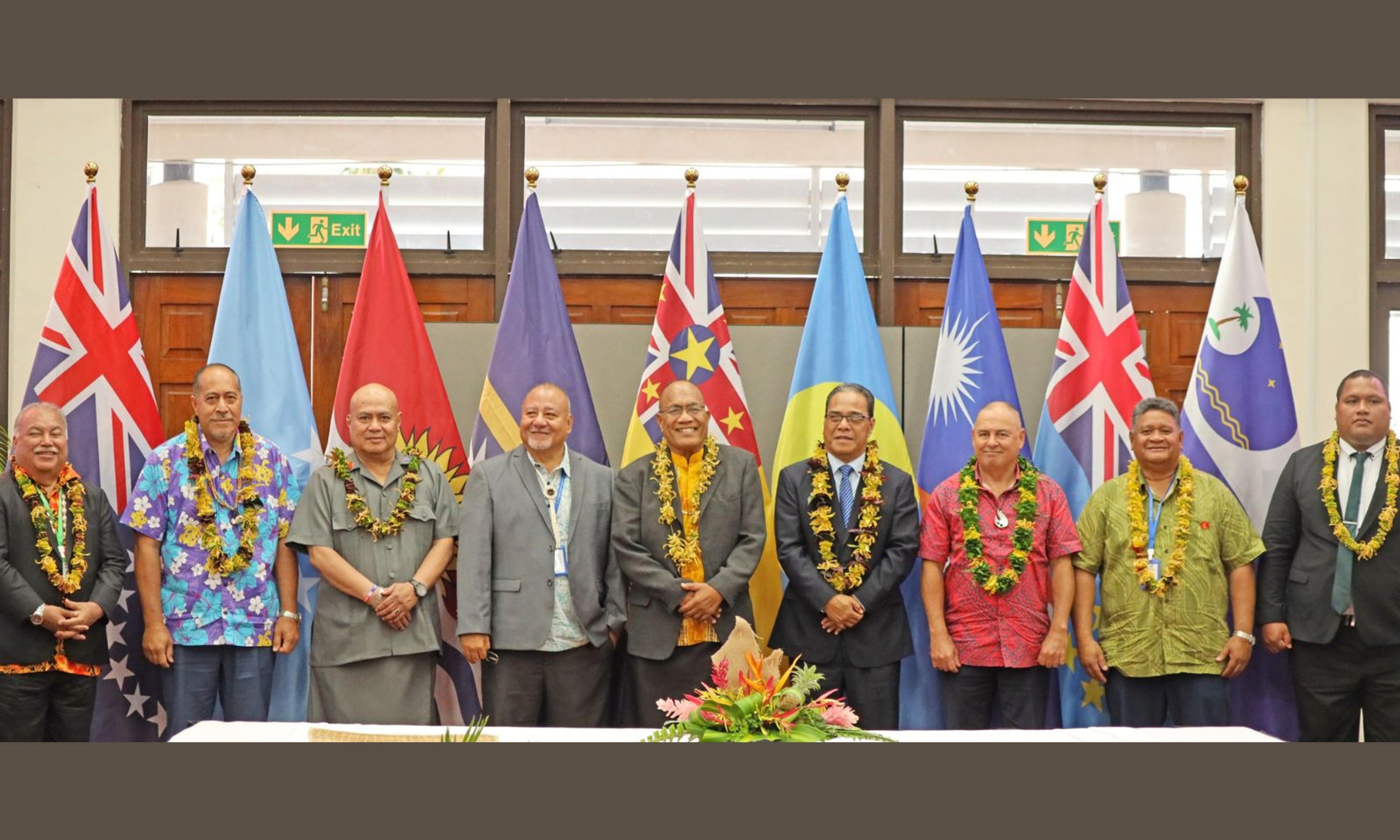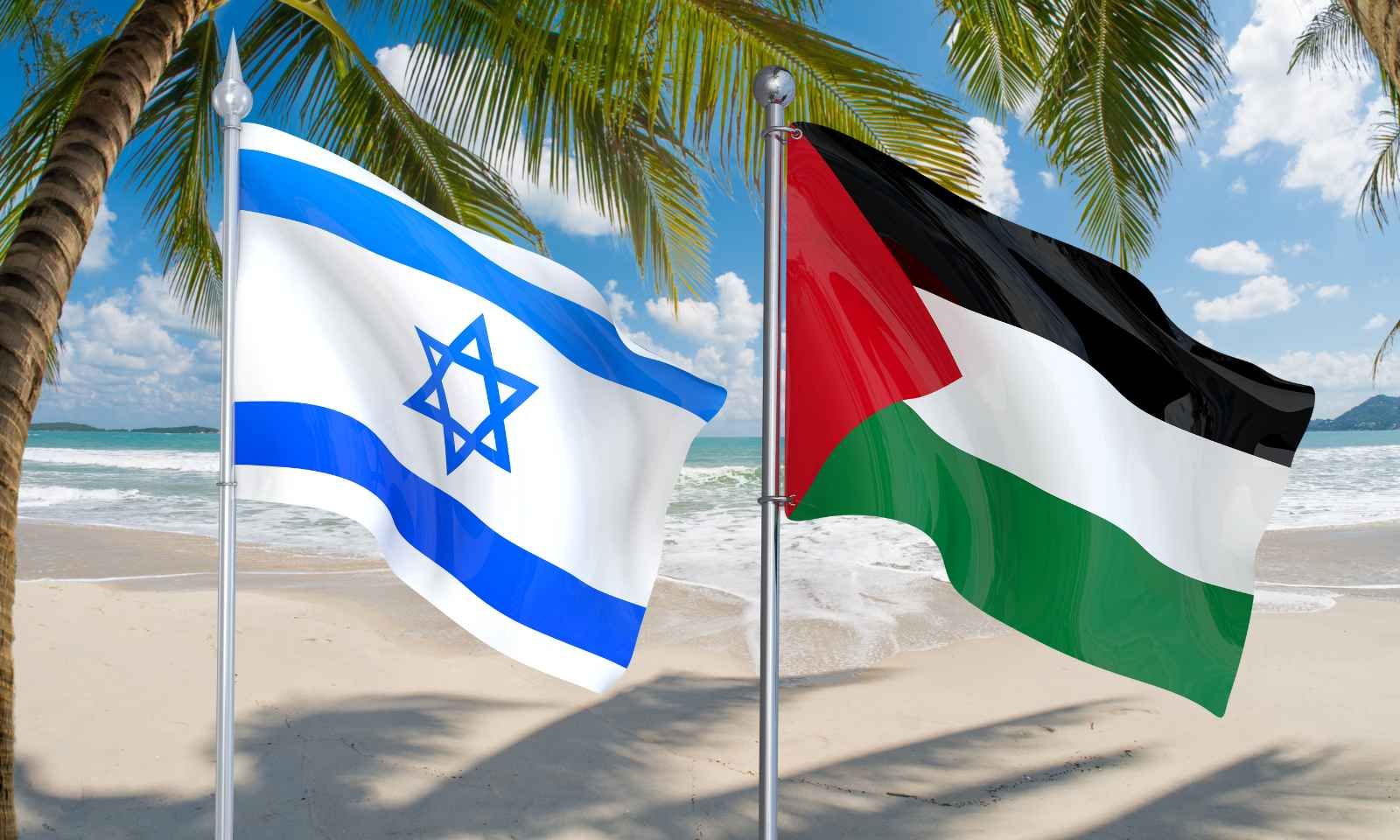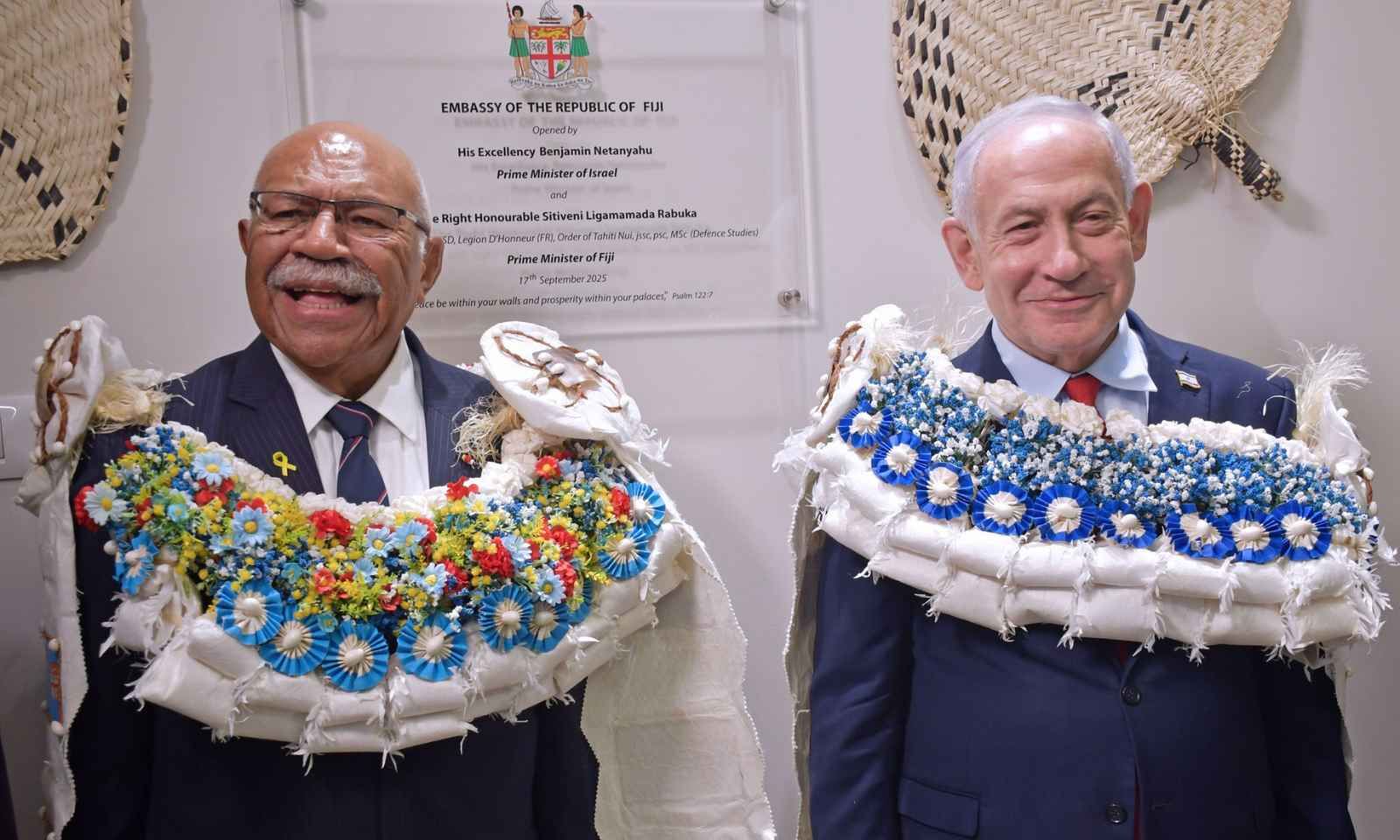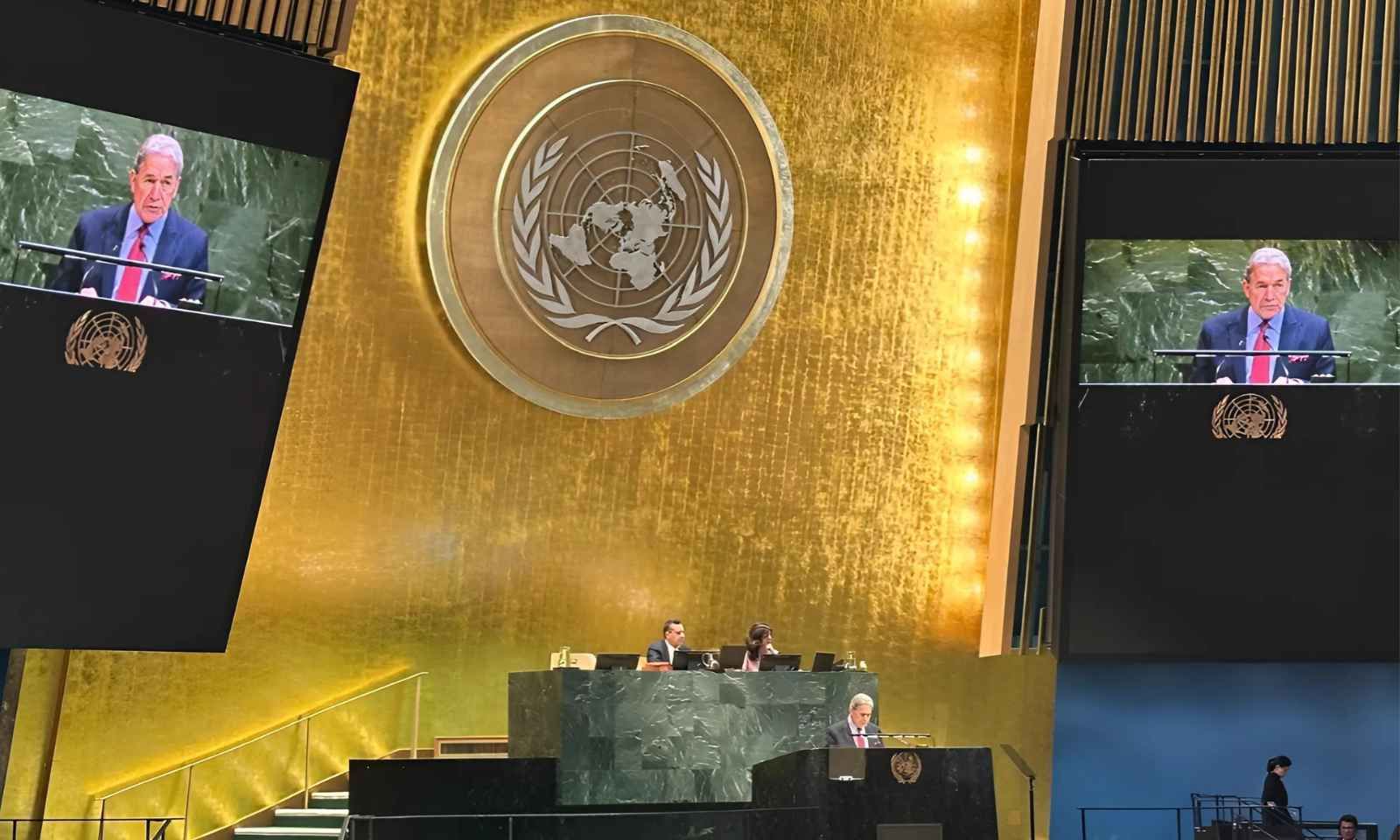

Robert G. Patman is a Professor of International Relations and an Inaugural Sesquicentennial Distinguished Chair (2019) at the University of Otago.
Photo/Supplied
Expert: Backing Israel ties Pacific nations to powerful allies - NZ risks same perception
Professor Robert Patman says Pacific nations back Israel to secure support from major powers, but warns New Zealand’s stance on Palestinian statehood risks damaging its reputation.



Musicians warn AI could strip the soul from island sounds


US withdrawal from global bodies raises concern for the Pacific's climate efforts - experts



Musicians warn AI could strip the soul from island sounds


US withdrawal from global bodies raises concern for the Pacific's climate efforts - experts
An international relations expert says recent support for Israel and the United States by several Pacific Island countries highlights the region’s reliance on influential allies to secure its interests.
In an interview with William Terite on Pacific Mornings, Professor Robert Patman of Otago University says these positions reflect the strategic dependence that influences Pacific diplomacy.
His comments follow strong support for Israel from several Pacific countries, most recently Fiji with the opening of an embassy in Jerusalem.
At the United Nations (UN) on 12 September, 142 countries voted to endorse the New York Declaration on a two-state solution between Israel and Palestine, with 10 countries opposing the resolution, half of them being Pacific Island countries: Nauru, Federated States of Micronesia, Palau, Papua New Guinea and Tonga
“Many of the Pacific island nations are quite small countries, and that’s not in any way to diminish their importance,” Patman says.
But these small countries with limited resources need good relations with powerful actors.
Listen to Professor Robert Patman's full interview below.
“One big backer of Israel is the United States.”
He points out that the United States was the first country to recognise Israel as a state in 1948.
According to the US Department of State, Israel has no greater friend than the global superpower and shares an “unbreakable bond” with the United States.

Israel has steadily strengthened its ties with Pacific Island nations through diplomatic visits, aid, and development partnerships, with several states backing Israel at the UN and even opening embassies in Jerusalem. Photo/Supplied
A Memorandum of Understanding between the two countries sees the United States commit USD$3.3 billion (NZ$5.7b) annually in foreign military financing and USD$500 million (NZ$864m) for cooperative programs in missile defence.
Patman says religion also plays a big factor, with many supporters in the United States being evangelical Christians.
He says that Fiji's establishment of an embassy in Jerusalem is controversial after Israel illegally annexed East Jerusalem in 1980, a move that hasn’t been accepted by much of the international community, including New Zealand.

Fiji Prime Minister Sitiveni Rabuka (left) and Israel Prime Minister Benjamin Netanyahu. Photo/Supplied
However, New Zealand’s recent refusal to recognise Palestinian statehood puzzles Patman, who questions the logic behind it.
Foreign Affairs Minister Vaovasamanaia Winston Peters announced New Zealand’s position during a statement to the UN General Assembly on Saturday.
Responding to the United States-backed “Gaza Peace Plan” announced at the White House on Tuesday, which aims to bring an immediate ceasefire, Peters reaffirmed New Zealand’s stance for diplomacy to succeed.
“New Zealand therefore welcomes the United States' Comprehensive Plan to End the Conflict in Gaza’ as an example of such global leadership,” Peters' statement says.
“We urge the parties to seize this important opportunity to end the conflict and implement the terms of the proposal fully. New Zealand wants to see an immediate end to this disastrous conflict.”
Patman says liberal democracies such as Canada, Australia and the UK have recently recognised a Palestinian state, after Israel’s Prime Minister recently confirmed he will never recognise a two-state solution.

Foreign Affairs Minister Vaovasamanaia Winston Peters speaking at the 80th United Nations General Assembly. Photo/Supplied
However, Peters maintains that New Zealand’s recognition of a Palestinian state is a matter of ‘when, not if.’
Patman says, “By delaying, Mr Peters and the government seem to be relaxed about the prospect of Israel's annexation of the occupied territories, and there won't be a state to recognise by then.”
He says there’s a big risk that New Zealand will be seen as aligning with the United States and Israel, which bears significant responsibility for prolonging the two-year conflict in Gaza.
“New Zealand may feel it is pursuing an independent foreign policy, but through the eyes of at least some New Zealanders, and I suspect many externally, it looks like New Zealand is siding with Israel and the United States.
“We can't control others' perceptions, and that is why this decision-making could backfire.”